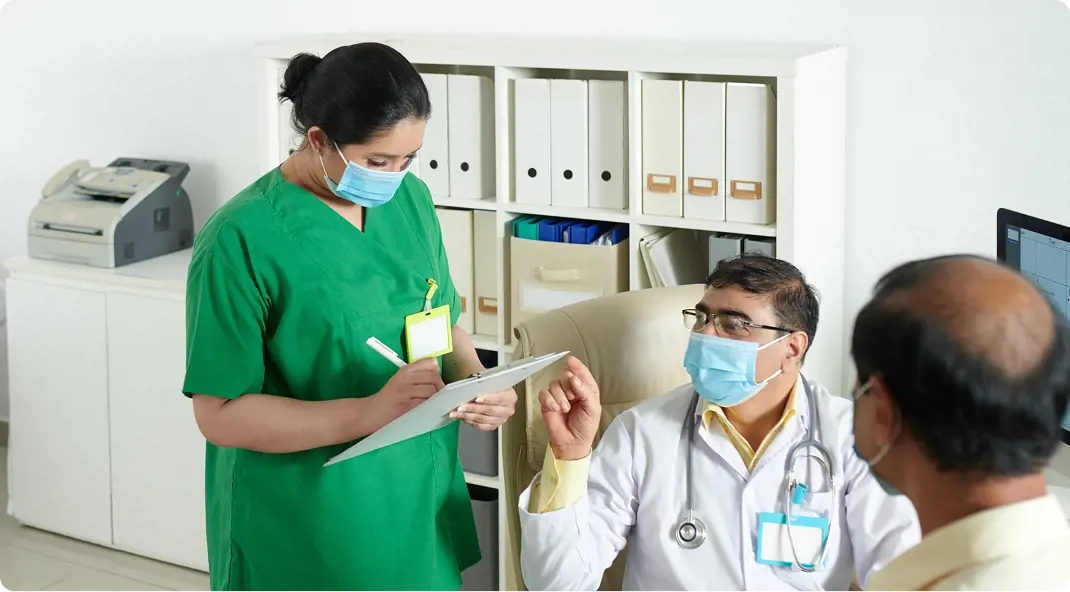Practical Training in PB BSc Nursing: Skills Development
Practical training is crucial to any nursing education, especially in the PB BSc Nursing program. Through hands-on experience, nursing students develop the essential skills they need to excel in their careers. This guide will explore the practical training aspects of the PB BSc Nursing syllabus and how it helps aspiring nurses develop their skills.
What is PB BSc Nursing?
PB BSc Nursing (Post Basic Bachelor of Science in Nursing) is a two-year program designed for registered nurses with a diploma in General Nursing and Midwifery (GNM). This program aims to enhance students' nursing skills and knowledge, preparing them for advanced roles in the healthcare sector.
Importance of Practical Training in Nursing
Practical training is essential in nursing because it bridges the gap between theoretical knowledge and real-world application. It allows students to:
-
Apply theoretical concepts in clinical settings.
-
Develop critical thinking and decision-making skills.
-
Gain confidence in performing nursing procedures.
-
Improve patient care through hands-on experience.
Practical Training Components in the PB BSc Nursing Syllabus
Clinical Practice
Clinical practice is a major component of the PB BSc Nursing syllabus. It involves working in hospitals, clinics, and other healthcare settings under the supervision of experienced professionals. Here, students learn to:
-
Conduct physical examinations of patients.
-
Administer medications and treatments.
-
Monitor patient progress and report findings.
-
Assist in surgeries and other medical procedures.
Simulation Labs
Simulation labs provide a controlled environment where students can practice nursing skills on manikins and other simulation devices. These labs are equipped with advanced technology to mimic real-life medical scenarios. In simulation labs, students can:
-
Practice emergency response techniques.
-
Learn to use medical equipment safely and effectively.
-
Develop teamwork and communication skills.
-
Gain proficiency in procedures without risking patient safety.
Community Health Training
Community health training involves working in community settings to provide healthcare services to various populations. This aspect of practical training helps students understand the broader scope of nursing and develop skills in:
-
Health education and promotion.
-
Disease prevention and management.
-
Community outreach and engagement.
-
Home healthcare services.
Specialized Clinical Rotations
Specialized clinical rotations allow students to gain experience in different nursing specialties, such as:
-
Pediatric Nursing: Care for infants, children, and adolescents.
-
Psychiatric Nursing: Address mental health issues and provide psychiatric care.
-
Medical-Surgical Nursing: Focus on patients undergoing surgical procedures or dealing with various medical conditions.
-
Obstetric and Gynecological Nursing: Care for women during pregnancy, childbirth, and postpartum.
Skills Development Through Practical Training
Patient Assessment
One of the primary skills developed through practical training is patient assessment. This includes:
-
Taking patient histories.
-
Conducting physical exams.
-
Identifying symptoms and making preliminary diagnoses.
-
Developing care plans based on assessments.
Communication Skills
Effective communication is critical in nursing. Practical training helps students improve their ability to:
-
Communicate with patients and their families.
-
Collaborate with healthcare teams.
-
Document patient information accurately.
-
Educate patients about their health and treatments.
Technical Skills
Nursing requires a variety of technical skills, including:
-
Administering injections and medications.
-
Inserting and managing IVs.
-
Wound care and dressing changes.
-
Using medical equipment like ventilators and monitors.
Critical Thinking and Problem-Solving
Practical training encourages the development of critical thinking and problem-solving skills. Students learn to:
-
Analyze patient data to make informed decisions.
-
Prioritize patient care based on urgency and need.
-
Adapt to changing situations in a clinical environment.
-
Implement evidence-based practices in patient care.
Time Management and Organization
Nurses often have to manage multiple patients and tasks simultaneously. Practical training helps students:
-
Develop efficient workflows.
-
Prioritize tasks effectively.
-
Manage time to ensure all patients receive adequate care.
-
Stay organized in a fast-paced environment.
Compassion and Empathy
Beyond technical skills, practical training fosters the development of compassion and empathy. These qualities are essential for providing holistic care and building trust with patients.
Tips for Making the Most of Practical Training
-
Be Proactive: Take the initiative to learn and practice as much as possible during clinical rotations and simulation labs.
-
Ask Questions: Don’t hesitate to ask questions and seek clarification from instructors and supervisors.
-
Reflect on Experiences: Regularly reflect on your experiences to identify areas for improvement and celebrate successes.
-
Stay Updated: Keep abreast of the latest developments in nursing practices and healthcare.
-
Build a Network: To build a supportive network, connect with fellow students, instructors, and healthcare professionals.
Conclusion
Practical training is a vital part of the PB BSc Nursing program, crucially developing the skills needed for a successful nursing career. Nursing students can bridge the gap between theory and practice by engaging in hands-on experiences, simulation labs, community health training, and specialized clinical rotations. This comprehensive approach ensures that graduates are well-prepared to provide high-quality patient care and take on advanced roles in the healthcare sector.
For more information on the PB BSc Nursing program and to explore the detailed PB BSc Nursing syllabus, visit Phoenix Nursing Institute. Start your journey towards becoming a skilled and compassionate nurse today!



